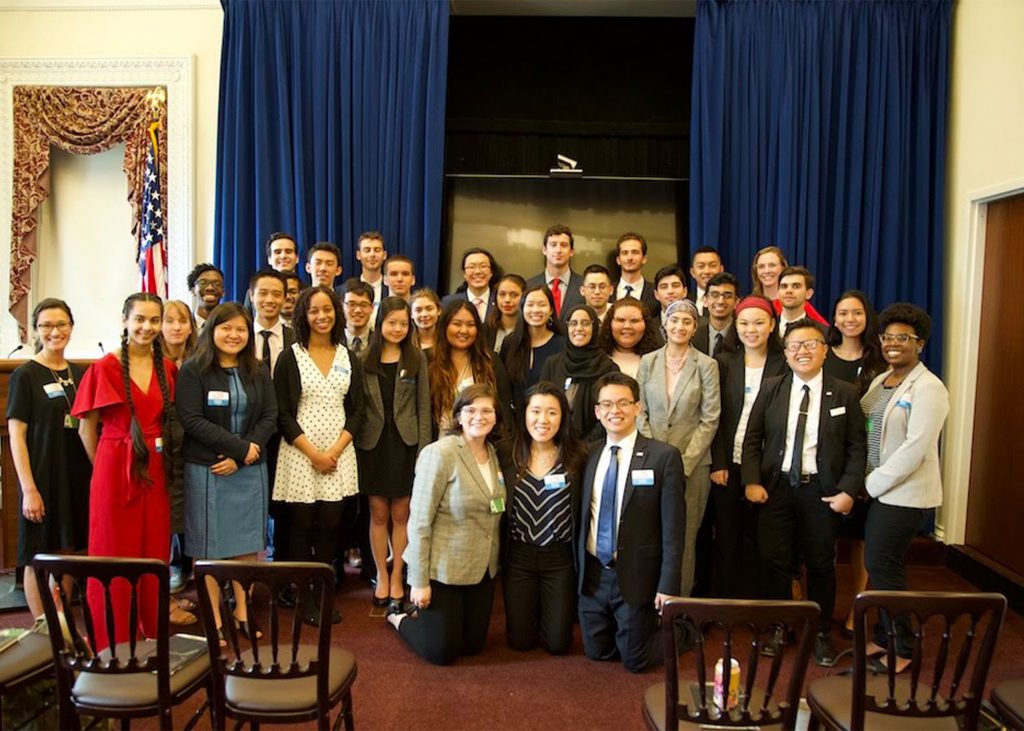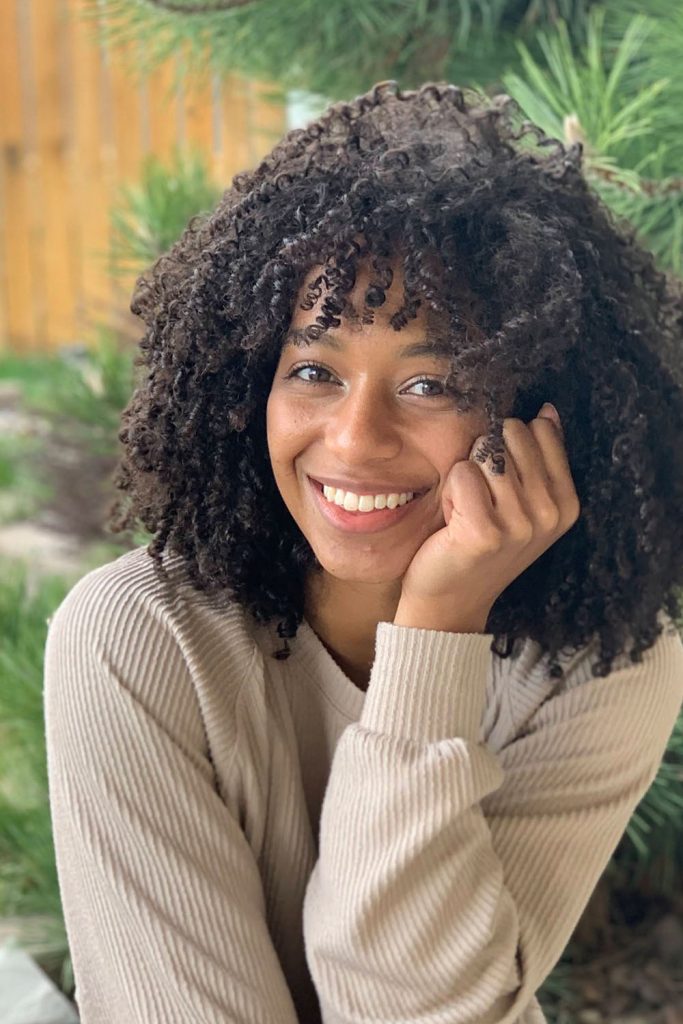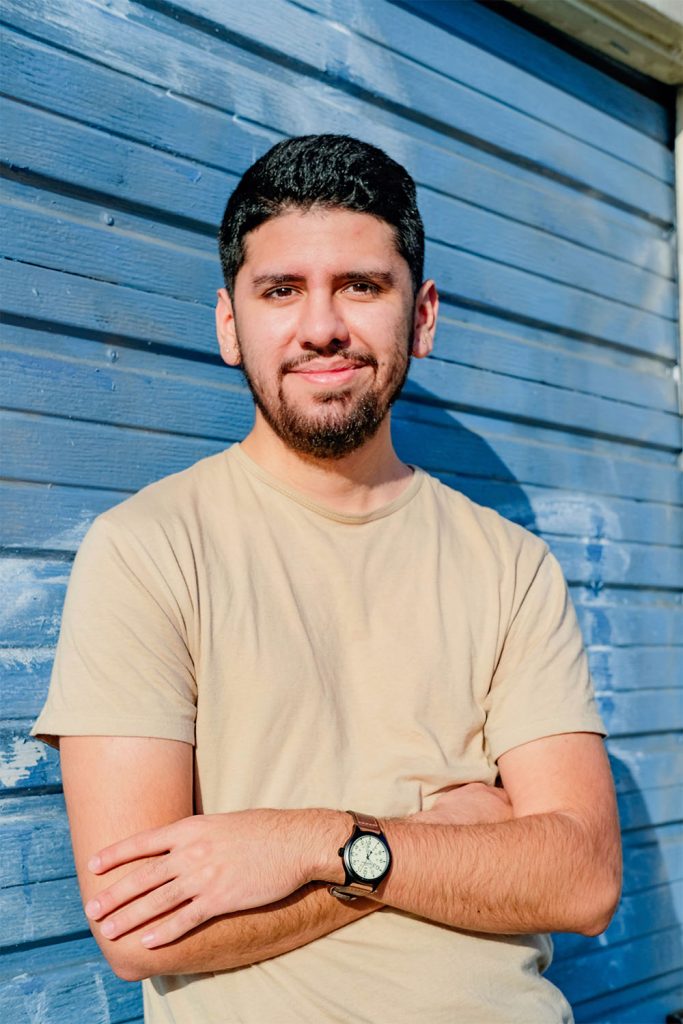
In the summer of 2018, Allen School senior Mariam Mayanja wanted to try something new. Instead of pursuing a computer science internship at a big tech company as she had in the past, she headed to Washington D.C. to become a Civic Digital Fellow. The Bothell, Washington native, who will continue her studies as part of the Allen School’s B.S./M.S. program, worked for the Department of Veterans Affairs, with the United States Digital Services Team.
“I found out about the Fellowship on the UW Society of Women Engineers Facebook page. I was looking for internships and was really intrigued to see a tech internship in a space where I had never thought I’d see tech,” Mayanja said. “Right off the bat, they had me glued by how cool all of the 2017 fellows’ projects sounded.”
The Civic Digital Fellowship program was created by a non-profit organization called Coding it Forward, whose mission is to create opportunities for young people working in technology to experience serving in a socially-minded and civically-engaged field. They developed the Fellowship program to offer government internships to college students interested in being employed by the federal government.
“Less than 3% of the federal technology workforce is under the age of 30, and over a third of federal technology employees will be eligible to retire in the next five years, making talent programs like the Fellowship all the more important,” said Rachel Dodell, co-founder and executive director of Coding it Forward. Not only does the Fellowship provide an opportunity for the federal government to build new talent pipelines, but it also exposes students to the incredible impact that one can make in public service.”

Mayanja was one of only 36 Fellows chosen in 2018 out of a pool of more than 850 applicants. She and another Fellow spent their internship building the GI Bill School Feedback Tool, which gives members of the military the chance to report an issue or complaint about a school or training facility that’s eligible to receive benefits directly to Veterans Affairs.
“I led the design, project management, and user research for the tool. It was an amazing experience because I was able to try out all of these different roles and I really loved being a design researcher and project manager,” she said. “Focusing on the GI Bill School Feedback Tool enabled me to do my first project that centered around equity and inclusion. The entire goal of it was to help veterans attain higher education in a way where they knew they would have someone to advocate for them if they needed it.”
Mayanja said that the experience was kindling for a fire that started in her to build upon Diversity, Equity and Inclusion initiatives in the Allen School. It was one of her inspirations to start Minorities in Tech at the University of Washington, which develops and fosters a diverse community that increases solidarity, allyship, and support to promote higher retention rates of minorities within the technology industry and academia. She also helped start Student Leaders for Inclusion, Diversity and Equity to gain more perspective in helping the Allen School administration focus on each in its strategic plan.
In addition to sparking her interest in working for social justice, the Fellowship built upon Mayanja’s previous experience with user research over her three internships at MicrosoftLiving in D.C., she was able to take advantage of the free museums and opportunities to bond with the other Fellows. According to Mayanja, the only negative experience was dealing with all of the mosquitos that call D.C. home — her experience was such a positive one, in fact, that she encouraged fellow Allen School senior Geovani Castro to apply for a Fellowship in 2020.

Castro, who grew up in Lynnwood, Washington, said the application process was challenging, but he took time to reflect on his past volunteering and civic duty experiences and explained how meaningful those had been to him. He spent his time as a Fellow working for the National Institutes of Health, working on the Common Data Elements group at the National Library of Medicine.
“Working in government is extremely different from anything I’ve done before,” he said. “Even though I’m planning to go back to industry, it’s very interesting experiencing a more democratic process. I’ve found working in industry to be a different process, so I wanted to give something more gratifying a chance. My software design classes came in handy as I got the opportunity to work at the NIH on a website for groundbreaking COVID-19 research.”
Castro, who learned how to work completely on his own project during his Fellowship, said the ability to design its limits was extremely refreshing — as was receiving clear directions and a concrete task to accomplish. However, because of the pandemic, he wasn’t able to go to D.C. and was thus disappointed to miss out on seeing the Capitol and meeting the other Fellows in person.
While Castro prefers to build a career in industry over government, he plans to volunteer and leverage his resources to help the less fortunate throughout his career. He also recommends that other Allen Students consider applying to the program.
According to Dodell, the UW has had five students complete a Fellowship through the program.
The first time Coding it Forward had a University of Washington student was in our inaugural cohort in 2017 — Andrea Chen (2017), Mariam (2018), Justin Bao (summer 2020), and Geovani (fall 2020) have worked across three agencies, including the U.S. Census Bureau, the U.S. Department of Veterans Affairs, and the National Institutes of Health.”
“There isn’t a lot of guidance in how to do the process itself, which can be intimidating, but the supervisors are extremely kind and more than willing to drop what they’re doing to assist you,” he said. “Any sort of civic fellowship can be a career altering experience considering how different they are from other internships.”
For more information on the Civic Digital Fellowship and when to apply, visit Coding it Forward.

